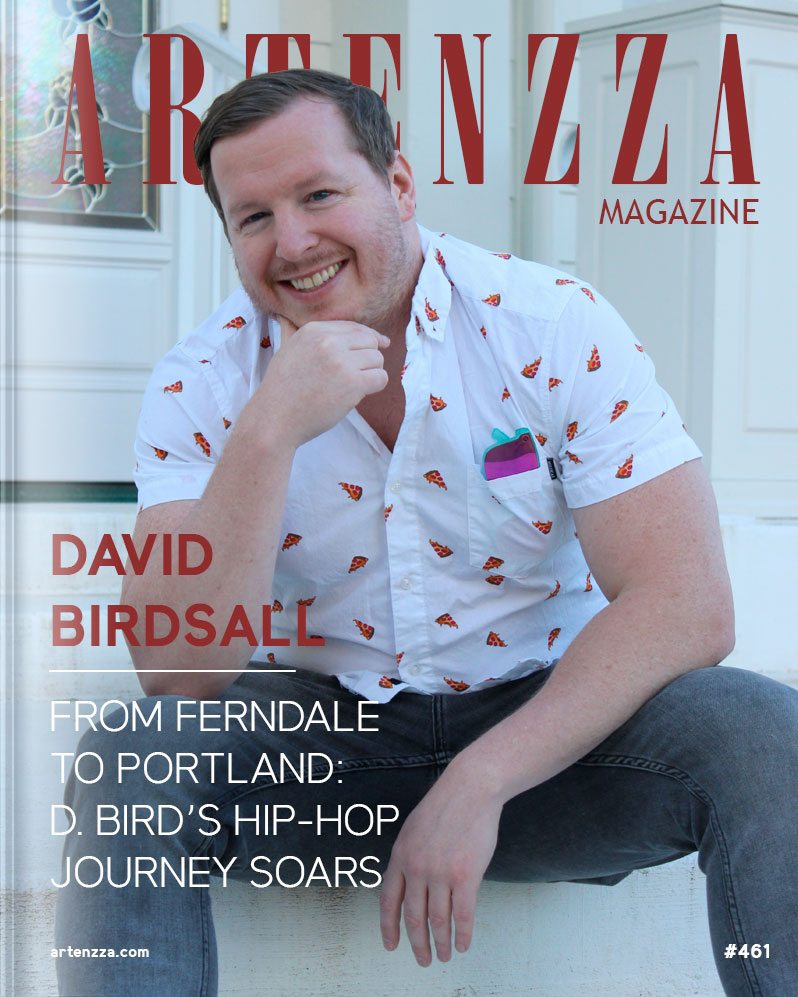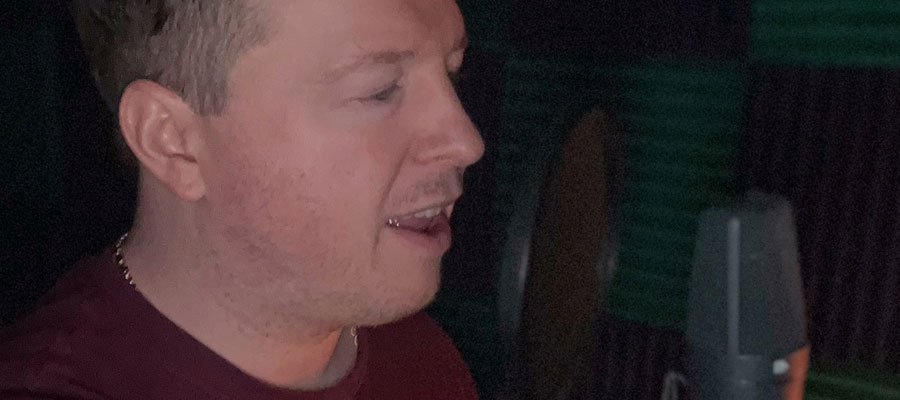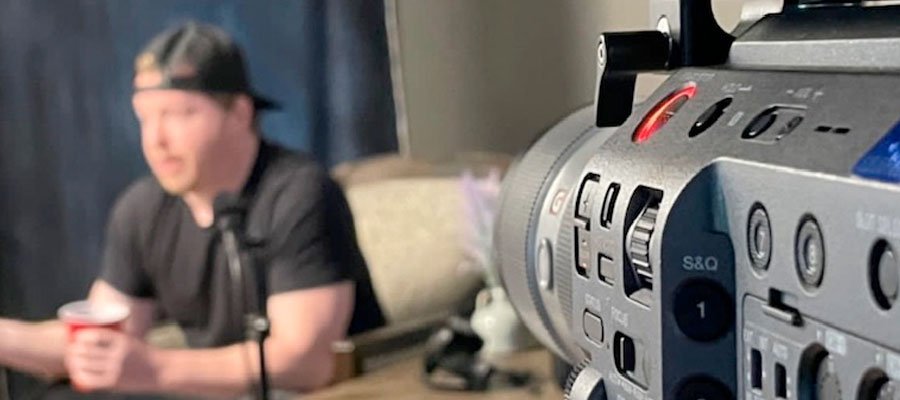Trusted by 500+ artists
Increase your visibility
Trusted by 500+ artists
Increase your visibility

Singer

Can you tell us more about your journey from growing up in a small town to becoming a driving force behind White Collar Rhymes and “The Last Mixtape” documentary?
Growing up in a small town, you had to get creative to find ways to entertain yourself. Without a community that understood hip-hop and not much else to do, I became obsessed with discovering new music and learning as much as I could from people more knowledgeable than me. I would spend hours in my high school library, typing out disses to strangers on the internet or arguing over hip-hop topics I was wholly unqualified to have an opinion on. The connections I made through this online rap community ultimately laid the foundation for White Collar Rhymes.
Many of the core members had known each other for over 20 years but had never actually met in person. When we started making music together as a group and the idea of meeting in person came up, I knew we had a unique opportunity to do something special. I often think about the legacy I’ll leave behind. Having seen how easy it is to get comfortable living an unfulfilling life from folks who never ventured outside our hometown, I vowed that would never be me.
Too many people talk endlessly about their plans, but I decided to put my money where my mouth is and take a risk on my team. I basically emptied my savings to book a mansion, hire a camera crew, and document what happens when you take ten people from incredibly diverse backgrounds and force them to live together for a week and a half while creating an album.
What inspired you to delve into hip-hop, especially considering your upbringing in a community known for its football program and farming?
I loved the rawness and attitude of hip-hop. It has this unparalleled confidence and bravado that you start to absorb by osmosis. I wasn’t unpopular in high school, but I was pretty shy. Discovering hip-hop as a form of self-expression helped me come out of my shell a bit. Plus, everyone in my hometown leaned really hard into the whole “country” thing, so hip-hop became my way to rebel against the status quo.
How did your early experiences with rap music shape your perception of the genre, and how do you think it differs from mainstream stereotypes?
My early experiences with rap music were shaped by mainstream stereotypes. I was mostly exposed to gangster rap and the top 10 countdown songs played by a Seattle DJ, so to me, “rap music” meant guns, drugs, and money. Not saying there isn’t a space for that, but it wasn’t until Eminem burst onto the scene making fun of the popular celebrities of the day that my rigid definition of rap got shattered. As I delved deeper into underground hip-hop and discovered artists who spoke to my own life experiences, I realized that rap can be anything you want it to be.
Could you share some pivotal moments or influences that propelled you into the world of rap and music creation?
The first time I tried to write a rap of my own was in 2001. During our annual family camping trip to Lake Padden, there was no TV, no video games, and no computer to get lost in. I was mad about something inconsequential and had barricaded myself in one of the log cabin rooms with D12’s “Words Are Weapons” playing on repeat on my Walkman. As I zoned out and listened to the raw emotion coming through my headset, I thought, “Hey, I could do this too.” I carefully wrote down my own words in place of Eminem’s verse. It was probably terrible, but when I showed my friend, he hyped me up so much that I wanted to keep going and try again with a different beat. The rest is history.
What prompted the resurgence of your focus on music after finding success in the corporate world, and how did White Collar Rhymes come into fruition?
I was never officially on a hiatus from music, but I probably made an average of 2-3 songs per year when I first started in the corporate world. There were too many competing priorities and not enough time in the day to do both. In 2022, my old friend from the rap battle forums, Cody Nash, put up $500 of his own money to organize a single-elimination song tournament. He provided us with topics to choose from, and we had a week to write and record a brand-new song, competing head-to-head against whoever we were paired up with for that round.
I made it pretty far in the tournament, and the forcing function of needing to create a song from scratch each week reignited my passion for music. Many of us who participated in the tournament continued collaborating on new music afterward. We found that communicating over Discord was the easiest way to stay updated on projects and generally a cool place to joke around with people we’d lost touch with. Those conversations eventually birthed a weekly podcast, which led to a weekly music review show. This is how the community grew from a few dozen forum-era rappers to over 1,600 members globally today.
“The Last Mixtape” seems to be a project deeply rooted in community-building and collaboration. Can you elaborate on how it aims to reshape perceptions of the rap genre and inspire others to pursue their passions?
When people hear the word “rapper,” they often imagine Tupac wearing a bandana and waving a gun. Anytime someone introduces me as a “rapper,” it feels cringeworthy because I know exactly where their mind goes. In 2024, it’s important to acknowledge that hip-hop comes in many forms, and you can be a normal person with a day job while expressing yourself through rap music. “The Last Mixtape” was an opportunity for my talented musician friends from diverse backgrounds to tell their stories and show that everyday people can be dope rappers too. Most of us are in our 30s or early 40s, with full-on careers and families, proving it’s never too late to chase your dreams if you’re willing to take the risk.
In what ways do you hope “The Last Mixtape” will impact its audience, both within and outside the rap community?
I hope The Last Mixtape inspires people to pursue their dreams, even if they’ve never had the guts to try before. It would have been easy for me to just talk about this cool idea of bringing internet rappers together to record an album in a mansion and then forget about it. Instead, I put up my own money and leveraged as many connections as I could to create something bigger than all of us. I couldn’t be more proud of how this project turned out. I knew if I didn’t at least try, I’d spend the rest of my life wondering “what if.” So I did it, and if I can make my passion project a reality, then anyone can.
Could you describe the process of gathering artists for “The Last Mixtape” and the atmosphere during its creation?
I extended an invite to any core members of the White Collar Rhymes collective to join and be part of the documentary. We have such a diverse crew, and each person’s story is relatable and interesting, on top of being insanely talented musicians. However, several members had family or job obligations that prevented them from participating this time around, so we made do without them. Ironically, this became a central theme of the documentary—how life often comes between us and our passion for music, making it more of a hobby than a full-time job.
The atmosphere while filming was electric. Everyone felt this energy vibrating through the air, with 9 people all working together simultaneously to create the best album we’d ever done. You’d pop your head into one room and see someone recording a verse, go outside and witness a couple of artists intensely bobbing their heads to a beat they were writing to, or go into another room to pick out your own beats to start a track with. Despite all their collective years of making music, everyone I talked to said they had never experienced anything like this before or since.
How do you envision the future of White Collar Rhymes and its role in fostering creative communities beyond music?
I feel like anyone can take our concept and make it their own. Imagine a group of talented artists with different specializations locking themselves in a house to create a mural together. A bunch of actors could live in the same house while going out to auditions, then come back to commiserate or celebrate together. Comedians stuck in the same house would roast each other, inspiring endless jokes at each other’s expense. Whatever the creative pursuit or dream, showcasing those willing to put everything aside and sacrifice to follow their passions is something I’d watch every time.
Lastly, what advice would you give to aspiring artists and creatives who may be struggling to balance their passions with other responsibilities in life?
Obviously, there are only so many hours in the day, and in the real world, you have deadlines and other obligations that demand your attention. I realized that many times I was just distracted by the comfort of a routine I accidentally established, which got me no closer to my goals and wasted a lot of my time. I’d spend countless hours doomscrolling on social media or filling my brain with whatever junk I came across on streaming services. Often, it isn’t the responsibilities themselves but the moments in between where you feel checked out or exhausted that you could be filling with higher quality activities. Remembering the “why” behind your passion helps you prioritize what’s truly important and find time to do the things you love rather than the things you’re forced to do.

Do you want to know more? You can find some projects below.
Spotify Playlist